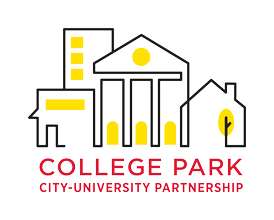Toolbox for Affordable Housing
The lack of affordable housing remains one of the most vexing challenges in the United States today. Be it rental apartments or rental homes, condominiums, cooperatives, or privately owned homes, housing is expensive.
Although different regions and cities may have specific challenges which exacerbate the housing crisis in those areas, there are several universal trends contributing to this issue, including the following:
- The disparity between annual increases in housing costs and household incomes.
- Increasing interest rates which challenge affordability and cost burdens
- For newer and renovated housing, the cost of construction and related material shortages have driven development costs—and thereby housing costs—up
- Limited new construction and increasing population, particularly in specific markets with net in-migration from other parts of the region, the country or abroad have left too many people competing for a static number of available units.
Given the complexity of the challenge, many people are exploring options to make housing more affordable. Options available vary widely and are dependent upon funding availability, income qualifications and housing supply, tools may be available to people seeking to change their housing and not be paying too much of their income for shelter.
Rental Assistance For people of limited resources, housing choice vouchers (such as Section 8 vouchers) could offer a way to rent apartments with federal assistance. The challenge of this program is that there are many more voucher-holders than available units.
Tax Credit Rental Housing For low- and moderate-income individuals (earning up to 60% median family income, as identified by HUD), properties that have been funded by Low-Income Housing Tax Credits may offer another avenue to housing. Waiting lists to get in may be long and these properties often have lotteries when they first open.
Help with a Downpayment For those looking to become homeowners, many governments and not-for-profit organizations offer downpayment assistance. which may be limited to certain income levels but may also be open to all. Very often, these are funded as second mortgages and forgiven over time and may be huge difference-makers that allow someone to cover closing costs.
Condominiums/Cooperatives The concept of shared ownership in the form of condominiums or cooperatives represents another avenue to affording a home. In some of these cases, people who want to buy into a project need to be approved by the relevant board, and they need to pay condo or coop fees in addition to the home costs. There are nuances in these forms of ownership in terms of how costs for the overall building are covered as well.
Land Trusts Finally, affordable housing land trusts have been around for quite some time all over the country. The first modern Land Trust arose in 1969 in Atlanta, by a relative of Dr. Martin Luther King, Jr. The idea was—and is—straightforward: since buying a home can be so expensive, why not split the land and the home, so that people can buy the home, while the land trust retains the land, and there is an opportunity for people to build wealth via homeownership which they can obtain at a lower price than market conditions?
That, in a nutshell, is what the Community Preservation Trust is doing in College Park.
